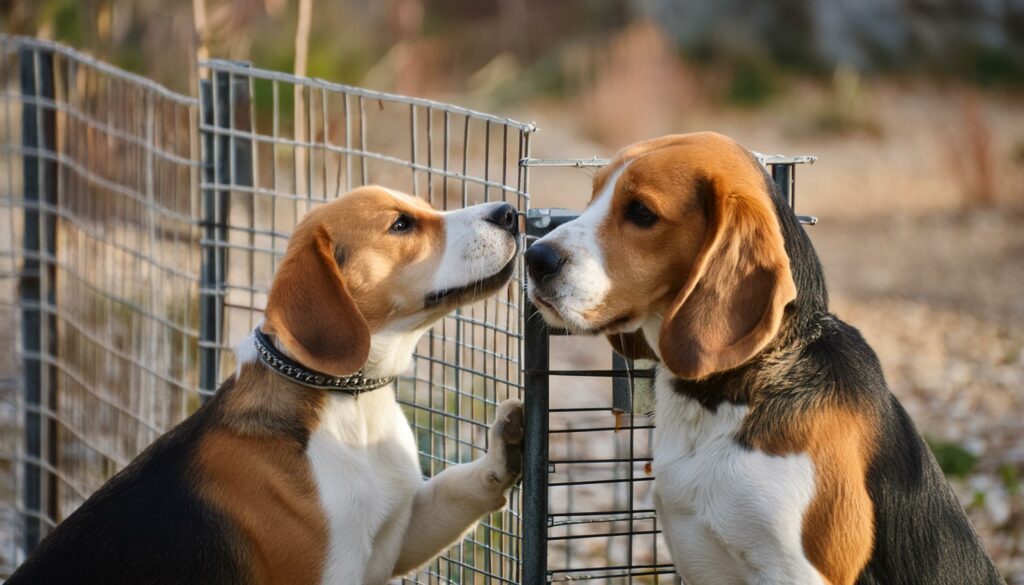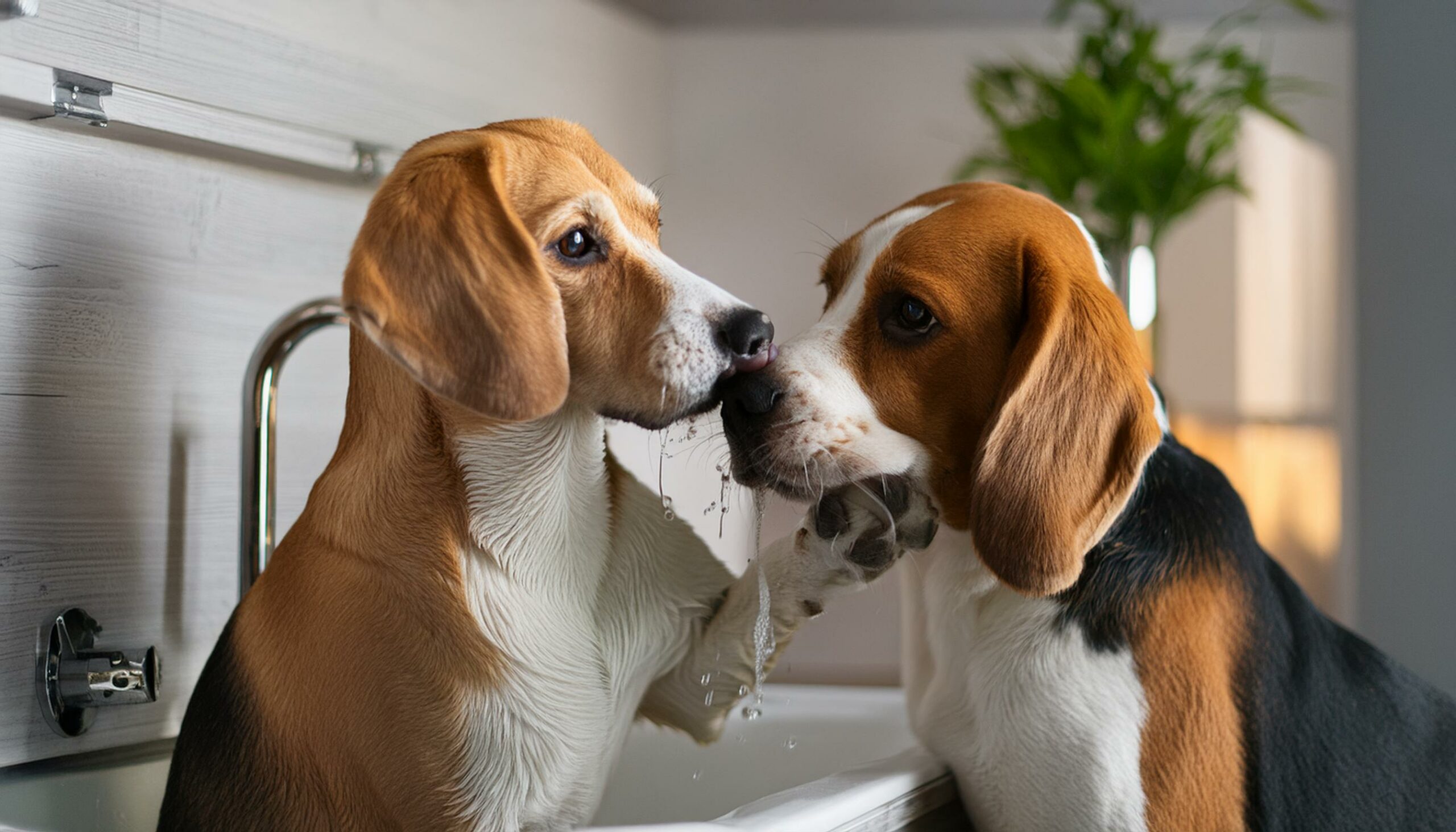Beagles, with their endearing floppy ears and soulful eyes, are beloved companions in many households. Beyond their charming appearance, one of the most fascinating aspects of Beagles is their extraordinary sense of smell. This keen olfactory ability allows Beagles to sniff out scents with remarkable precision, making them excellent hunters and trackers. However, not all smells are pleasing to these sensitive canine noses. In this article, we’ll explore the intriguing question: What smell do Beagles hate?
Understanding a Beagle’s Sensitive Nose
To comprehend why certain smells bother Beagles, it’s essential to first understand the intricacies of their sense of smell. Beagles possess an impressive olfactory system, with up to 300 million scent receptors in their noses. Compare that to a human’s mere 5-6 million, and it’s clear why Beagles are considered scent hounds par excellence. This heightened sense of smell is a product of their breeding as hunting dogs, where they relied on their noses to track game through dense brush and across vast terrain.
Common Smells Beagles Dislike

Foods Beagles Hate the Smell of
Citrus Fruits
Beagles often recoil from the sharp, tangy scent of citrus fruits like oranges, lemons, and grapefruits. While humans may find these aromas refreshing, Beagles can find them overwhelming and unpleasant. This aversion to citrus scents may be due to their intensity, which can irritate the delicate membranes inside a Beagle’s nose.
Spicy Foods
Similarly, the pungent aromas of spicy foods such as chili, garlic, and onion can be off-putting to Beagles. These strong smells can be overpowering to their sensitive noses, causing discomfort or even irritation. It’s essential for Beagle owners to be mindful of the ingredients in their pets’ food to ensure they don’t inadvertently subject them to unpleasant odors.
Household Scents That Annoy Beagles

Cleaning Products
The potent chemical odors emitted by many household cleaning products can be highly offensive to Beagles. Bleach, ammonia, and other harsh chemicals used in cleaners can irritate their noses and respiratory systems, prompting them to avoid areas where these odors are present. Pet owners should opt for natural or unscented cleaning products to minimize their Beagle’s exposure to these strong smells.
Perfumes and Strong Fragrances
Beagles have a low tolerance for heavily scented perfumes and air fresheners. The strong fragrances from these products can overwhelm their sensitive noses, causing discomfort or even allergic reactions. It’s best to avoid using strong-smelling products around Beagles and opt for gentle, pet-safe alternatives instead.
Outdoor Odors Beagles Find Unpleasant
Chemicals and Pesticides
Chemical odors from pesticides, fertilizers, and herbicides can be particularly offensive to Beagles. These strong-smelling substances, often used in gardens or agricultural areas, can pose health risks to Beagles if inhaled in large quantities. Pet owners should take precautions to keep their Beagles away from areas treated with these chemicals.
Other Animal Scents
While Beagles have a natural instinct to hunt, certain animal scents can be off-putting to them. The strong odors of skunks, certain rodents, or other animals may cause Beagles to avoid areas where these scents are prevalent. Understanding and respecting your Beagle’s sensitivities to these smells can help create a more comfortable environment for them.
Reasons Behind Beagles’ Dislike for Certain Smells
The aversion to certain smells exhibited by Beagles can be attributed to their sensitive noses and innate instincts. Strong or unfamiliar odors may signal potential danger or discomfort to Beagles, prompting them to avoid these smells whenever possible. Additionally, Beagles have individual preferences and sensitivities, so what one Beagle dislikes, another may not mind.
Managing Beagles’ Reactions to Offensive Odors
As responsible pet owners, it’s crucial to be mindful of the smells that bother Beagles and take steps to minimize their exposure to them. This may involve using natural or unscented cleaning products, avoiding strong perfumes or fragrances, and keeping Beagles away from areas treated with harsh chemicals or pesticides. Additionally, providing plenty of fresh air and ventilation can help dissipate offensive odors in the home.
Conclusion
While Beagles possess an extraordinary sense of smell that serves them well in many situations, not all odors are appealing to them. By understanding the smells that Beagles dislike and taking proactive measures to minimize their exposure to them, pet owners can ensure their Beagles lead happy, healthy, and comfortable lives.
FAQs
Can Beagles’ sensitivity to smells affect their behavior?
Yes, strong or unpleasant smells can influence a Beagle’s behavior, causing them to avoid certain areas or become agitated.
How can I tell if a smell bothers my Beagle?
Watch for signs of discomfort, such as sneezing, coughing, or avoiding certain areas where strong smells are present.
Are there any scents that Beagles particularly enjoy?
Beagles have a keen sense of smell and may enjoy the scent of certain foods, treats, or natural aromas like fresh grass or herbs.
Can Beagles’ sensitivity to smells be trained or managed?
While you can’t change a Beagle’s natural sensitivity to smells, you can help them become accustomed to certain odors through positive reinforcement training.
Should I be concerned if my Beagle shows a strong aversion to a particular smell?
If your Beagle consistently reacts strongly to a certain smell, it’s best to consult with a veterinarian to rule out any underlying health issues.
